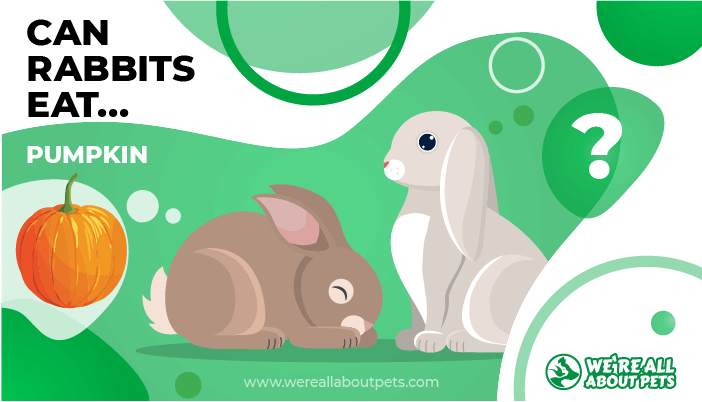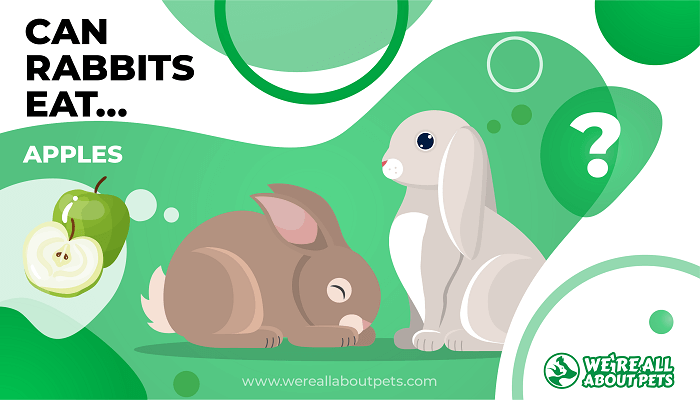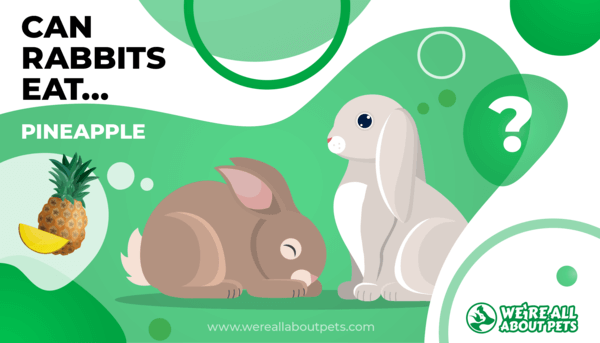Can Rabbits Eat Cheese?
This page contains affiliate links. We may earn money or products from the companies mentioned in this post through our independently chosen links, which earn us a commission. Learn More
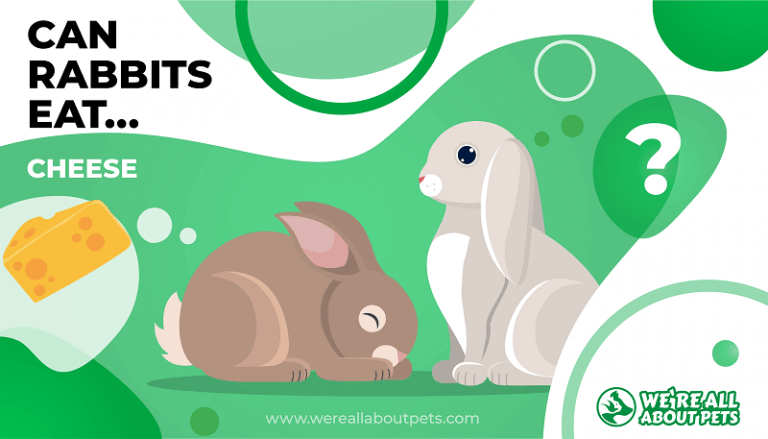
We love it on pizza, pasta, and sandwiches: Cheese is easily one of the most popular foods on the planet. No wonder you’re curious about sharing it with your pet! Can rabbits eat cheese? If so, how much can they have and how often can they have it?
The quick answer to your question is no – rabbits shouldn’t eat cheese.
Stick with us for a complete explanation plus some great alternatives to cheese for rabbits.
Cheese Nutritional Facts
Cheese isn’t good for rabbits, but it can be perfectly healthy for you! Since different types of cheese offer different nutrients and macros, we’re just providing a quick overview to give you an idea about which nutritional needs cheese might help you meet.
In general, cheese is a good source of:
- protein
- fat
- omega-3 fatty acids (grass-fed varieties only)
- calcium
- magnesium
- phosphorus
- vitamin A
- B vitamins
Can Rabbits Have Cheese?

No – rabbits cannot have cheese. No type of cheese is safe for rabbits.
Here’s why:
Rabbits require a diet that’s mostly made up of fiber. They have an organ called the cecum, which contains a balance of yeast and other bacteria that break down the fiber as part of the rabbits digestive process.
Cheese and other dairy products disrupt the balance in your rabbit’s cecum, leading to bloating and constipation as well as G.I. stasis, which can be deadly.
There’s another reason why you should never feed cheese to a rabbit. Cheese and other dairy products can cause harmful bacteria to build up in the intestine. This is called enterotoxemia, and it can kill your rabbit.
Is Cheese Good For Rabbits?
Absolutely not! Never give a rabbit cheese.
Do Rabbits Like Cheese?
Rabbits are dedicated herbivores. We don’t think your rabbit would enjoy cheese and as you might have guessed, we’ve never tried giving cheese to a rabbit as it’s so dangerous.
It’s best to keep your rabbit safe and offer healthy foods only.
How Much Cheese Can A Rabbit Eat?
None. Never give a rabbit cheese.
| Age | Amount |
| Baby rabbits | None |
| Adult rabbits | None |
How Often Can A Rabbit Eat Cheese?
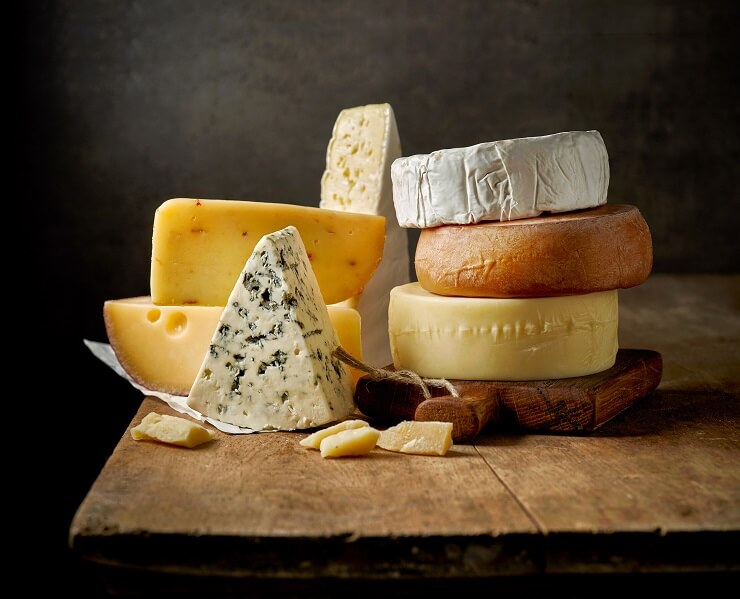
Lots of people approach us with this question, thinking that it’s OK for rabbits to have at least a little bit of cheese and wondering how often they can offer it as a treat.
You’ve come this far and you know the answer as well as we do – but it definitely bears repeating!
Don’t give cheese to a rabbit. Ever. Not even once.
The Correct Diet Is Important
Since cheese is off the menu, you might find yourself wondering: What do rabbits eat?
Pet rabbits look far different from their wild cousins, but they share many similarities including the same digestive system. Your rabbit’s diet should mimic the wild rabbit’s diet.
In the wild, bunnies eat a variety of long stemmed grasses and low-lying plants that are easy to reach. Fresh hay replaces the grasses and good quality rabbit food fields in any gaps in your rabbit’s nutrition.
Besides these two essentials here’s what else to feed your rabbit for great health:
- Fresh hay should be the cornerstone of your rabbit’s diet. Options including orchard and Timothy are ideal, and to satisfy their urge to nibble, your bunny ought to have an unlimited supply. While overeating can make your rabbit sick, constantly nibbling hay helps keep your bunny’s digestive tract moving and promotes good health.
- High-quality rabbit food is another essential. Every brand is different so take a peek at the package to see how much you should be feeding your bunny based on life stage and size.
- Fresh foods make life in a bunny hutch a whole lot more exciting. You can offer your rabbit about one cup of leafy greens plus a tablespoon of crunchy veggies per two pounds of body weight.
- Tiny amounts of fruit are special treats that your bunny will really appreciate. Research each type of fruit you consider for your rabbit; in general though, the proper amount is about 1 teaspoon of fruit per 2 pounds of body weight.
- Remember to keep your bunny’s water bottle full and rinse it every day.
Here’s something new rabbit families aren’t always aware of: A rabbit’s teeth never stop growing! For this reason, it’s important to provide your rabbit with safe chewable toys. Untreated softwood sticks, hay cubes, coconut shells, and unbleached loofah are a few favorites.
Keep these items in your bunny’s hutch at all times. It’s the best, easiest way to prevent your rabbit’s teeth from becoming overgrown. In addition, chewing prevents boredom and promotes good mental health.
What Are Other Healthy Alternatives To Cheese In A Rabbit’s Diet?
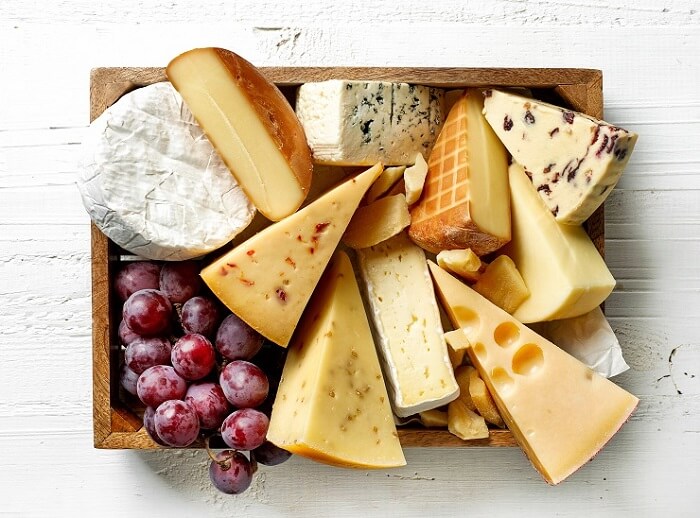
Now that you know that cheese is not an option for your rabbit, you might be wondering which treats our best.
Here’s a list of vegetables rabbits really like:
- basil
- parsley
- cilantro
- carrot tops
- swiss chard
- beet greens
- radish tops
- spinach
- arugula
- romaine lettuce
- butter lettuce
- cabbage
- brussel sprouts
- broccoli
- dandelion greens
- endive
- escarole
- fennel
- bok choy
- yu choy
- kale
- carrots
- bell peppers
As you can see, there’s no need to risk your rabbit’s health by feeding them cheese.
Here’s a little more good news: There are plenty of other vegetables, fruits, and herbs to give your rabbit. Spend a few minutes looking into each new item you consider just to make sure that it’s safe and to find out how much to feed your rabbit.
For now, why not offer your bunny a healthy treat from our list? They’ll enjoy having something tasty to nibble!
Frequently Asked Questions
Is cheese safe for rabbits?
No. Cheese can be deadly to rabbits! Never give a rabbit cheese.
Can cheese make my rabbit sick?
Yes, and that’s why we absolutely do not recommend feeding cheese to rabbits. Cheese can cause serious digestive disruption that can lead to death. Never give cheese to rabbits.






